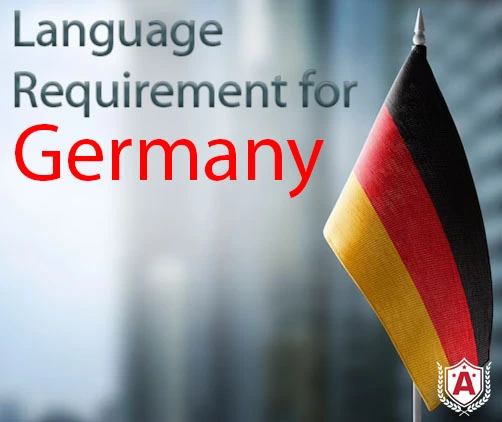Updated on May, 23 2024 06:55 IST
 A Master's degree in Canada serves as an advanced academic or professional program tailored to elevate your career or scholarly pursuits. Available in both course-based and thesis-based formats, it represents the pinnacle of higher education in the country. Whether awarded as a degree or diploma, it can be tailored to academic or professional aspirations. This program is perfect for those aiming to deepen their education, engage in research, or achieve career milestones in Canada. Beyond academic knowledge, it provides insights into working, understanding Canadian culture, and adapting to life in the country. Equipping students with essential skills and knowledge, a Master's in Canada opens doors to career advancement and educational growth.
A Master's degree in Canada serves as an advanced academic or professional program tailored to elevate your career or scholarly pursuits. Available in both course-based and thesis-based formats, it represents the pinnacle of higher education in the country. Whether awarded as a degree or diploma, it can be tailored to academic or professional aspirations. This program is perfect for those aiming to deepen their education, engage in research, or achieve career milestones in Canada. Beyond academic knowledge, it provides insights into working, understanding Canadian culture, and adapting to life in the country. Equipping students with essential skills and knowledge, a Master's in Canada opens doors to career advancement and educational growth.
| Average Master’s Fee in Canada | INR 17–20 lakhs |
| Total No. of Colleges in Canada for Master’s | More than 50 institutions |
| Master’s Specializations or Programs | Biological Sciences, Geology, Mathematics, Health Science, Computer Science and Engineering, Food Science, Chemistry |
| IELTS/ TOEFL | Mandatory for admission |
| Eligibility | Bachelor's degree with transcripts, Statement of Purpose (SOP), Letters of Recommendation, Resume |
| Intakes | June, November, February |
| Duration | 1–2 years |
Canada is home to many prestigious and globally recognized universities, making it a top destination for quality education and promising career prospects. Key reasons to consider studying in Canada include:
Master's programs in Canada place a strong emphasis on research. Students are encouraged to engage in hands-on research opportunities, helping them gain deeper insights and expertise in their chosen fields.
Compared to other major study-abroad destinations like the US and UK, Canada offers relatively affordable education. Tuition fees and living expenses are generally more budget-friendly.
Canadian universities offer a wide range of scholarships and financial aid programs specifically for international students, making it easier to pursue graduate education without excessive financial burden.
Canada is known for its welcoming and inclusive environment. Regardless of your background, nationality, or field of interest, you’ll find a safe and supportive atmosphere that values diversity.
The country actively invests in the well-being of international students, ensuring their experience in both academics and day-to-day life is secure, equitable, and enriching.
Canada is home to some of the world's top-ranking universities. In fact, seven Canadian institutions are featured in the top 100 global university rankings.
Canada offers a wide variety of specializations for Master's degrees, making it a top destination for international students. Some of the most popular programs include:
Master in Business Administration (MBA): The MBA in Canada is one of the most sought-after programs, especially among Indian students. With 47 schools offering MBA programs, students can find institutions aligned with their career goals. These programs are known for equipping students with essential business skills and global exposure.
MS in Software Engineering: Offered as M.S.E. or M.Eng. degrees, this program focuses on software system design, development, and maintenance. Students gain hands-on experience in languages like Java and C++, preparing them for advanced roles in the tech industry.
Master’s in Nursing (MSN): A two-year program designed to develop leaders in nursing. Specializations include perioperative and emergency nursing. Graduates are equipped for diverse clinical settings and can pursue doctoral studies.
Master’s in Computer Science: Typically 1.5 to 2 years long, this program is available as MSc, MACS, or M.Eng. It focuses on computational theory, data structures, and building scalable software systems, preparing graduates for roles in development, research, and academia.
Other popular Master's programs in Canada include:
MS in Geology
MS in Mathematics
MS in Physics
MS in Food Science
MS in Finance
World-class education: Canada is home to several globally ranked universities, with seven institutions in the world’s top 100.
Research-driven programs: Canadian universities emphasize research, encouraging Master's students to actively engage in innovation and academic discovery.
Affordable education: Tuition and living costs are significantly lower compared to the US and UK, making Canada a budget-friendly option.
Generous scholarships: Numerous financial aid options and merit-based scholarships are available for international students.
Safe and inclusive society: Canada is known for its welcoming environment, ensuring a safe and respectful space for students of all backgrounds.
High quality of life: International students enjoy a high standard of living, excellent healthcare, and numerous opportunities for post-study work and permanent residency.
Canadian universities typically offer three admission cycles annually:
To apply successfully to Canadian universities, ensure you meet the following eligibility criteria:
For a Master's degree, a minimum GPA of 3.0–4.0 (or equivalent) in your Bachelor's program is typically required.
Proof of English proficiency is mandatory for non-native speakers, usually through TOEFL, IELTS, or equivalent tests.
1–3 years of relevant work experience is often required, especially for professional Master's programs.
For MBA programs, a competitive GMAT or GRE score is usually necessary.
Applicants must prepare and submit the following documents for admission:
Application form
Copies of academic records
CV/Resume
Health insurance
IELTS or TOEFL scorecard
Letters of Recommendation
Medical certificate
Passport
Passport size photographs
Proof of scholarship or funding
Statement of Purpose
Visa
To apply successfully to a Canadian university, follow these steps:
Select your preferred university and Master's program.
Complete the online application form and upload all required documents.
Pay the application fee through the university’s official portal.
Wait for the university to review your application.
If accepted, you will receive an official offer or invitation letter.
Use the offer letter to apply for a student visa.
A student visa is mandatory for anyone planning to pursue academic, professional, or vocational training in Canada. While the actual study permit is issued upon arrival in Canada, students must first apply for a visa through official Visa Application Centers. The Temporary Residence Visa (TRV) is issued by the Canadian High Commission. The application fee for a student visa is CAD 160.
Canada is home to some of the world’s most prestigious universities. Based on the QS World University Rankings 2022, here are the top Canadian institutions for Master's studies:
| UNIVERSITY | QS WORLD UNIVERSITY RANKING 2022 |
|---|---|
| University of Toronto | 26 |
| McGill University | 27 |
| University of British Columbia | 46 |
| Université de Montréal | 111 |
| University of Alberta | 126 |
| McMaster University | 140 |
| University of Waterloo | 149 |
| University of Ottawa | 230 |
| University of Calgary | 235 |
Canada hosts several globally ranked institutions for Master's programs, as per the QS World University Rankings 2024:
| UNIVERSITIES | QS WORLD UNIVERSITY RANKING 2024 |
|---|---|
| University of Toronto | 21 |
| McGill University | 30 |
| University of British Columbia | 47 |
| Universite de Montreal | 116 |
| University of Alberta | 136 |
| McMaster University | 146 |
| University of Waterloo | 158 |
| University of Ottawa | 237 |
| University of Calgary | 246 |
Students can access numerous scholarships to support their studies in Canada, including university-funded, government-sponsored, and private organization awards. These scholarships help offset tuition and living costs. Notable options include:
Aga Khan Foundation Scholarship
Graduate Entrance Scholarships
Graduate Scholarships
International Entrance Awards
Ontario Graduate Fellowship
Ontario Graduate Scholarships
University of Waterloo International Master’s and Doctoral Awards
IELTS or TOEFL scores are essential for admission to Canadian universities. Minimum score requirements vary by program but generally fall within these ranges:
IELTS: 6.5 to 7.0
TOEFL: 90 or above
Canada offers excellent job opportunities for graduates with a Master's degree. With a high number of work permits issued annually, a competitive salary structure, and nationwide job access, it is a prime destination for skilled professionals. Fields such as Computer Science, Engineering, and Healthcare are in high demand. Below are average annual salaries for popular job roles in Canada:
| Jobs | Average Salary in Canadian Dollars |
|---|---|
| Computer Science / IT | 62,000 |
| Electrical Engineering | 75,000 |
| Civil Engineering | 48,000 |
| Mechanical Engineering | 50,000 |
| Data Science and Machine Learning | 65,000 |
While living costs in Canada are relatively high, they remain more affordable than in countries like the UK. Estimated annual expenses for 2024 include:
Housing: CAD 6,000 to 12,000 annually
Transportation: CAD 90 to 120 per month
Health Insurance: CAD 400 to 1,000 annually
Miscellaneous: CAD 800 to 1,000 annually
 Located in North America, Canada borders the USA, Mexico, and Greenland. Renowned for its stunning landscapes, extreme climates, and outdoor adventures, the country offers everything from serene wilderness to breathtaking lakes. Outdoor activities like hiking and skiing are popular, with iconic mountain ranges such as the Rockies and Laurentians.
National parks like Banff and Jasper add to its allure. Beyond its natural beauty, Canada is celebrated for its education system, career opportunities, and healthcare.
Located in North America, Canada borders the USA, Mexico, and Greenland. Renowned for its stunning landscapes, extreme climates, and outdoor adventures, the country offers everything from serene wilderness to breathtaking lakes. Outdoor activities like hiking and skiing are popular, with iconic mountain ranges such as the Rockies and Laurentians.
National parks like Banff and Jasper add to its allure. Beyond its natural beauty, Canada is celebrated for its education system, career opportunities, and healthcare.
Key facts:
| Capital | Ottawa |
| Largest City | Toronto |
| Languages | English and French |
| Area | 9,984,670 square kilometers |
| Population (2022) | 38,654,738 |
| Currency | Canadian Dollar (CAD) |
| Calling Code | +1 |
Are international students allowed to work after completing their Master's in Canada?
Yes, international students can work in Canada after completing their Master's degree. However, you must apply for a post-graduation work permit (PGWP) to be eligible for employment.
What languages are used for instruction in Canadian universities?
Most universities conduct lectures in English to accommodate both domestic and international students, ensuring clear comprehension for all participants.
What is the typical duration of a Master's program in Canada?
A Master's degree in Canada typically takes 1-2 years to complete. The exact duration depends on your chosen program type (thesis-based, course-based, or professional programs).
Get free 1-on-1 counselling with our experts

The German language is one of the official languages of Germany so proficiency i...
May, 31 2025
Are you planning to study in Germany? If so, it is important that you understand...
May, 31 2025
There are a variety of scholarships available in Germany, from government-sponso...
May, 31 2025
Germany is a popular destination for students seeking a quality education at an ...
May, 31 2025
If you are looking for a new job in Germany, or if you are an expat considering ...
May, 31 2025
This blog post will provide an overview of the various levels of schooling avail...
May, 31 2025
Are you looking to expand your education abroad and experience all that Germany ...
May, 30 2025
In recent years, more and more students have chosen to study in Germany. This be...
May, 30 2025